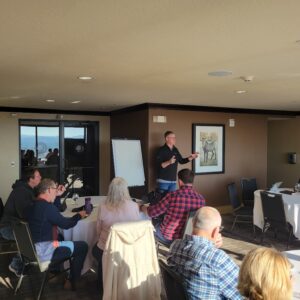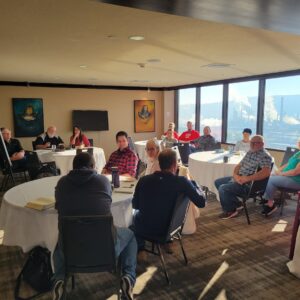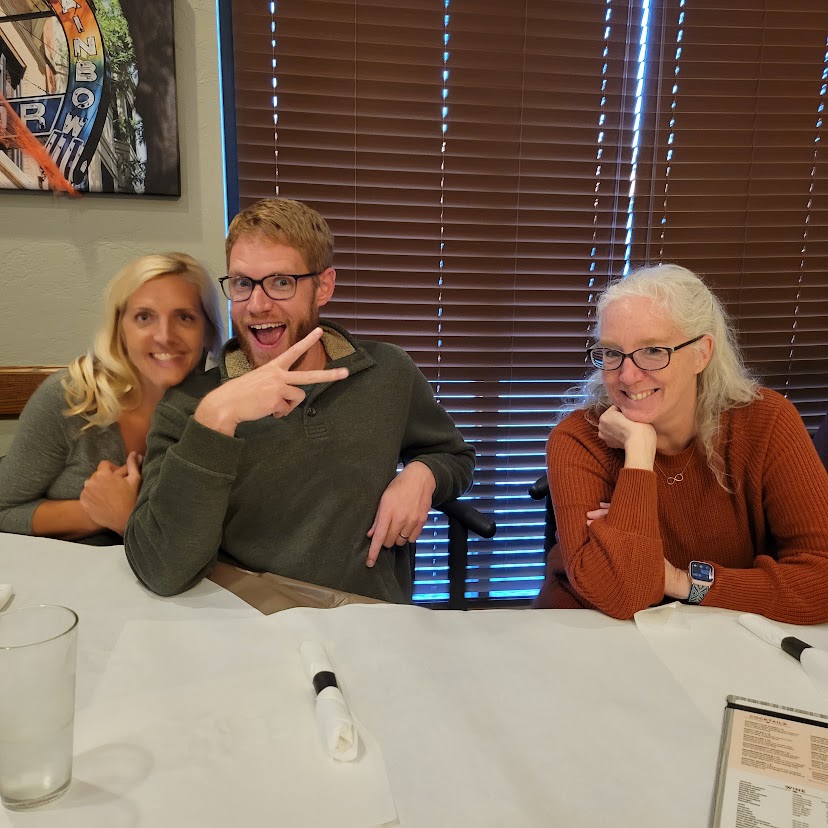A pitfall is an unexpected danger or difficulty. Pitfalls are hidden or camouflaged, so one can come out of nowhere. Therefore, on the trail or walking through life, caution is needed. This imagery is true in ministry, as well. Despite knowing they exist one must be on the lookout. It’s also helpful to have an extra set of eyes to avoid them and another set of hands to pull yourself out of them.

Chip Dodd is a Christian counselor who studies the lives of pastors, parents, and leaders. He shares five pitfalls that we are prone to fall into as a natural hazard to ministry. Pastors find fulfilment in serving others. The most significant moments in life come when they are giving their gifts, abilities, passion, and creativity. However, when people pour out energy by doing what is fulfilling, they need to refill and be replenished to continue to serve well.

The pitfalls Chip Todd teaches were the topic of discussion at our recent pastor care cohort training in Billings. Pastors must be humble enough to know their limits, their needs, and be willing to ask for help. Therefore, having trusting relationships is so important. A listening ear and healthy diagnostic questions can help pastors and wives avoid falling into pitfalls that sap their energy, cause them emotional harm, and rob them of living an abundant life in Christ.
Keith Evans, who serves with the North American Mission Board in Pastor Care, led our training. He has served as a catalyst to create a pastor care team in Montana. Together, we have designed the pastor care cohorts to be a lifeline to pastors and wives, by extending care and friendship to pastoral families. It is the mentality that “we are in this together, and we have each other’s back.” No one wants to be blindsided by a pitfall, but sometimes we need a little help crawling out. That’s what friends do. They also have a meal together, have fun together, and evidently secretly take pictures on your phone.



Since Refresh, new cohorts have started in Libby, the Flathead Valley, Bozeman, the Hi-Line, and the Billings area. There is room to add new families to one of these, or to the others we have established in Missoula, Helena, Kalispell, and the Triangle Association. As you read about the pitfalls below, do you see the evidence and effects of pitfalls in your life? If so, you need a friend to talk them out with. We understand what you are facing. We face those same things every day and the members of our pastor care team are open and honest about them. You can also check out other helpful resources at www.chipdodd.com for serving King Jesus with vitality and fervor.
Pitfalls of Heroism
Chip Dodd, PhD
1. Work becomes confused with worth
Leaders can draw crowds, get things done, or set themselves apart from others through accomplishments or talents. This work can be good and true. However, a leader can confuse the crowds, the feedback, and accomplishments with their worth as a person. A leader’s sense of confidence and value can begin to go up or down based upon the applause. In the up and down roller coaster of pursuing worth, the words “Dad” or “Mom” lose their sense of value and purpose. This effect can happen to professionals, little league coaches, church volunteers, and PTA presidents. A leader can easily forget that their worth comes from being human. Worth is inborn; we don’t lose it. The crowd looks for what the leader can give. God and loved ones look for the heart of who the person is from the inside out. Worth tied to the crowd can mean loss of recognition of worth as a person.
2. Performance begins to be valued more than presence
When a leader’s main personal value is associated with performance, they become someone they are not—human doings. To be present means to be able to present the truth of our inner selves as human beings. Presence is the ability to speak the feelings, needs, desire, longings, and hopes of one’s own heart. Present people can be “in need” and be led. Performers develop contempt for their neediness. They also eventually develop secret contempt and fear towards the needs of others because they see others as the ones who demand that they perform.
The ease of being one’s true self is lost in the “dis-ease” or stress of believing that one is only valuable for their performance.
3. People become things
Leaders enter the world of doing good because they wish the pain of the world to be treated, bettered, or healed. As the pitfalls develop, however, the people that the leader wishes to serve become burdensome objects that have to be dealt with; the people that the leader works with become objects that have to be manipulated; and family members become burdensome objects of needs that have to be met. The leader who originally planned to benefit others is now at a significant crisis point. They must move into neediness as human beings or fade into despair as human doings.

